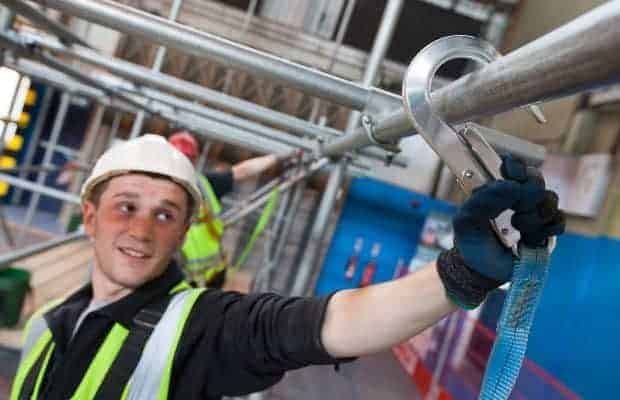Entering the scaffolding industry in the UK can be a fulfilling career choice, combining physical work with technical skills and the satisfaction of contributing to significant construction projects.
If you’re considering a career as a scaffolder, this guide will help you understand the steps to get started, the necessary qualifications, and tips for securing your first job.
Understanding the Role of a Scaffolder
Scaffolders play a crucial role in the construction industry by erecting and dismantling temporary structures that allow workers to access high places safely. This job requires physical strength, precision, and a solid understanding of safety regulations.
Steps to Becoming a Scaffolder in the UK
Assess Your Suitability for the Job – Before committing, ensure that scaffolding is a good fit for you. Scaffolders need to be physically fit, comfortable working at heights, and able to work in various weather conditions. Good hand-eye coordination and spatial awareness are also essential.
Gain the Necessary Qualifications – While formal education isn’t always required, certain certifications can enhance your employability:
- GCSEs or Equivalent: Most employers prefer candidates with basic educational qualifications.
- Scaffolding Training Programs: Enrol in a Construction Industry Scaffolders Record Scheme (CISRS) approved training programme. These programmes teach the skills needed to erect, maintain, and dismantle scaffolding safely.
- Health and Safety Training: Completing a recognised health and safety course, such as the Site Safety Plus (SSP) or an equivalent, is often essential.
Get Experience
Experience is vital in this field. You can gain hands-on experience through:
- Apprenticeships: Many scaffolders start as apprentices. These programmes combine on-the-job training with classroom instruction, providing a comprehensive foundation.
- Entry-Level Positions: Starting as a general labourer on a construction site can provide valuable experience and help you learn the ropes.
Develop Essential Skills
Certain skills are critical for scaffolders, including:
- Physical Fitness: Scaffolders need to lift heavy materials and climb regularly.
- Attention to Detail: Precision is crucial when constructing scaffolds.
- Teamwork: Scaffolders often work in teams, so good communication and cooperation are essential.
Get Certified
In the UK, specific certifications are often required:
- CISRS Card: The Construction Industry Scaffolders Record Scheme (CISRS) card is a standard requirement. You can start with a CISRS Labourer card and work your way up to an Advanced Scaffolder card.
- CSCS Card: The Construction Skills Certification Scheme (CSCS) card is also often required to work on construction sites.
Finding a Job as a Scaffolder
Prepare Your CV and Cover Letter – Highlight your training, certifications, and any relevant experience. Emphasise your physical fitness, attention to detail, and teamwork skills.
Network – Networking can be powerful in the construction industry. Connect with industry professionals through:
- Job Fairs: Attend construction and trade job fairs.
- Professional Associations: Join associations like the National Access and Scaffolding Confederation (NASC).
- Online Platforms: Use LinkedIn and the Scaffmag Scaffolding Jobs website to connect with employers.
Apply to Jobs – Look for job openings on:
- Scaffolding Company Websites: Many companies list job openings directly on their websites.
- Job Boards: Sites like Scaffmag, Indeed, Totaljobs, and Reed often have listings for scaffolding positions.
Tips for Success
- Stay Updated: The construction industry is always evolving. Stay updated on the latest safety regulations and industry standards by following Scaffmag.
- Continuing Education: Consider additional certifications or courses to enhance your skills and qualifications.
- Safety First: Always prioritise safety. Adhering to safety protocols not only protects you but also makes you a more desirable candidate for employers.
Becoming a scaffolder in the UK involves a combination of training, certification, and hands-on experience. By following the steps outlined in this guide, you can build a solid foundation for a successful career in scaffolding. Stay committed, keep learning, and prioritise safety, and you’ll be well on your way to landing your first job as a scaffolder.
Embark on this journey with confidence, knowing that your efforts will contribute to the vital infrastructure that supports our world. Good luck!





